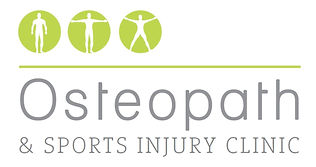Osteopathy
Osteopathy
Treatments
What is osteopathy?
Osteopathy is an established recognised system of diagnosis and treatment, which lays its main emphasis on the structural and functional integrity of the body.
Osteopathy uses detailed knowledge and understanding of the structure and function of the human body to identify faults which may have occurred by injury or mechanical stress.
Using a combination of osteopathic soft tissue massage, joint mobilising and manipulation to treat a number of conditions.
Stretching, strengthening or mobility exercises may also be prescribed as well as advice on posture, diet, ergonomics and lifestyle.
It is an established and recognised medical discipline and can only be practiced by trained professionals under strict guidelines.
What kinds of problems can osteopathy help with?
We take pride on taking a complete view of our patient’s complaint and aims to tailor their treatments and rehabilitation programs specific to each individual and encourage them to understand their diagnosis and therefore efficiently manage their rehabilitation.
Many people visit an osteopath because of back pain, however osteopathy doesn't just treat the spine, but is also very efficient at treating other conditions including:
-
Arthritic Conditions
-
Sciatica
-
Sports Injuries
-
Frozen Shoulders
What can I expect when I visit an osteopath?
When you visit an osteopath for the first time a full case history will be taken and you will be given an examination.
You will normally be asked to remove some of your clothing and to perform a simple series of movements.
The osteopath will then use a highly developed sense of touch, called palpation, to identify any points of weakness or excessive strain throughout the body.
How many treatments will I need?
Osteopathy is patient centred, which means treatment is geared to you as an individual.
Andrew should be able to give you an indication after your first visit.
For some acute pain one or two treatments may be all that is necessary.
Chronic conditions may need ongoing maintenance.
Do I need a referral from my GP?
A formal referral from your GP is not necessary, the majority of osteopathic patients self-refer.
If you'd like to get treatment paid for by a private health scheme contact your Doctor first.
How does osteopathy work?
Osteopaths work with their hands using a wide variety of treatment techniques.
These may include soft tissue techniques, rhythmic passive joint mobilisation or the high velocity thrust techniques designed to improve mobility and the range of movement of a joint.
Gentle release techniques are widely used, particularly when treating children or elderly patients. This allows the body to return to efficient normal function.
How can I be sure I am in safe hands when visiting an osteopath?
A Registered Osteopath has demonstrated to the General Osteopathic Council via a detailed application process that they are a safe and competent practitioner, that they have adequate malpractice insurance and have agreed to abide by a Code of Practice.
I have noticed many osteopaths have the letters DO and/or BSc (Ost) after their names what does this mean?
These are osteopathic qualifications. The DO stands for diploma in osteopathy the BSc is a degree in osteopathy.
The length of training is the same for both, at least four years full-time training.
Legislation came into force on 9th May 2000 requiring all osteopaths to be registered with the GOsC.
You can check that I am registered by looking me up on their website: General Osteopathic Council
Can I have osteopathic treatment on the NHS?
Most people consult an osteopath privately. Telephone local practices to find out about fees in your area. An increasing number of osteopaths work with GP practices so that it may be possible for your doctor to refer you to an osteopath on the NHS.
Can I have osteopathy on my private medical insurance?
Many private health insurance schemes give benefit for osteopathic treatment. Some companies will reimburse the total fee or pay a percentage of the costs. Contact the helpline of your insurance company who will explain the actual benefits and methods of claim for your individual policy.

2010 - present
2010 - present
